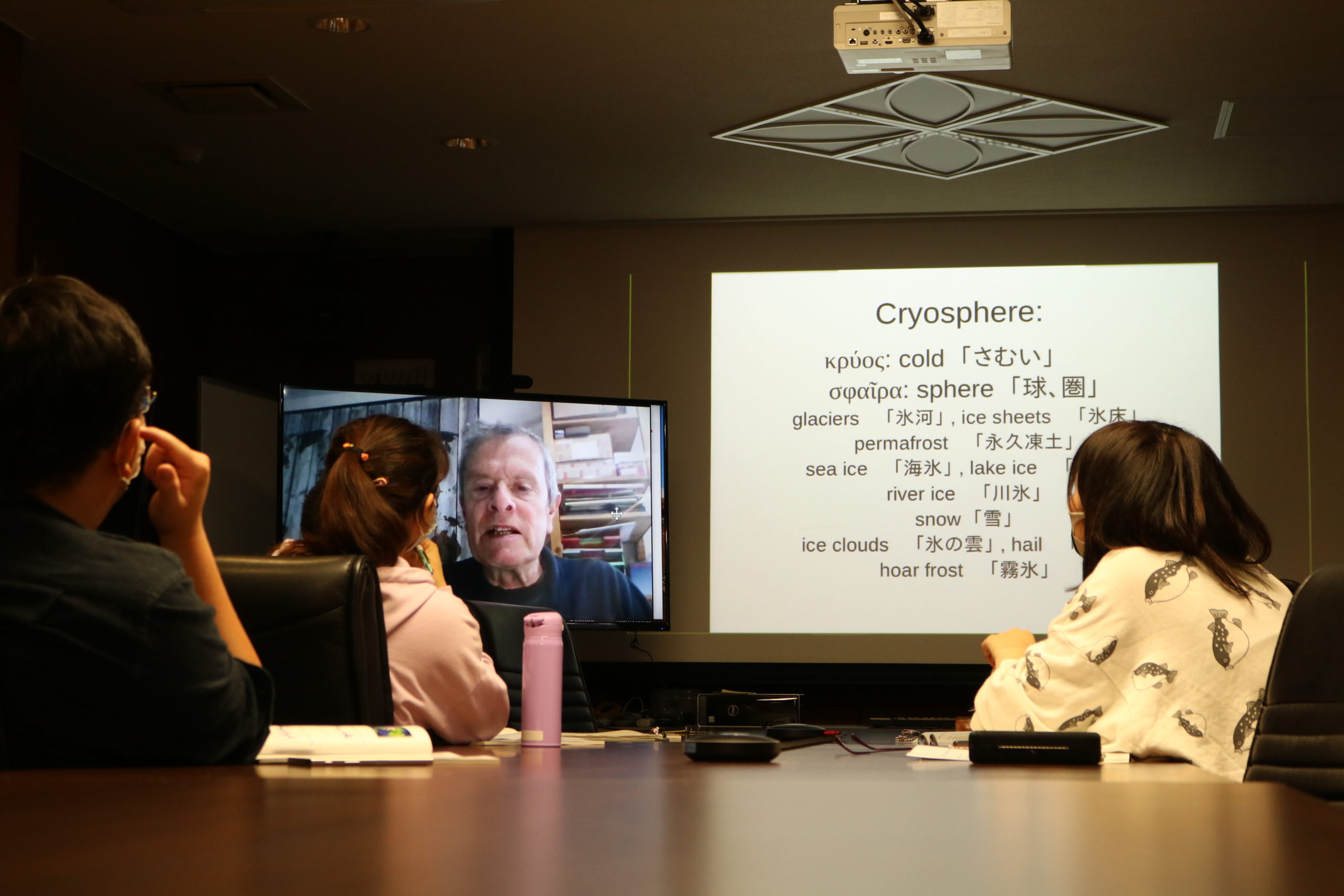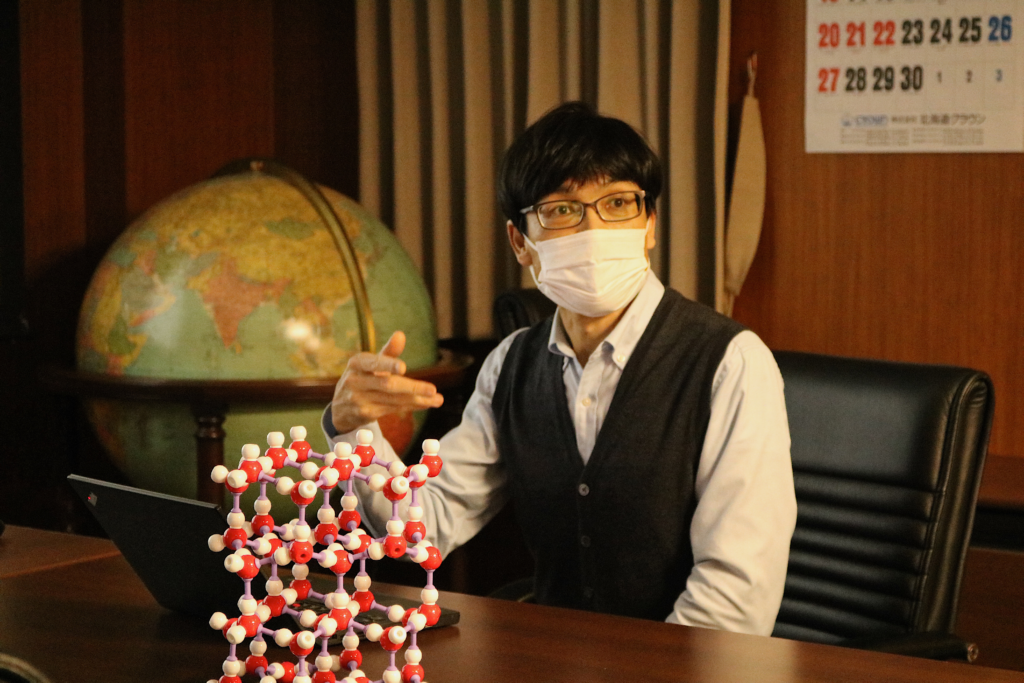HSI Report: “Special Lecture on Antarctic Science II”
University News | October 13, 2020
Two weeks, twelve sessions, fourteen participants and two overseas guest instructors. The Special Lecture on Antarctic Science II of Hokkaido Summer Institute (HSI) 2020 was hosted by Institute of Low Temperature Science (ILTS) of Hokkaido University. Held from September 14th to 29th, 2020, the lecture series is a continuation from an introductory course held in August.
As a part of the International Antarctic Institute project, the Special Lecture on Antarctic Science II aimed to gather people from various fields who are concerned with Antarctic and polar issues. Over the course of two weeks, the series of lectures was attended by around 5-6 on-site students out of 14 students. The rest, who are in the middle of conducting field research and are not in the campus area, were able to participate online. Two guest instructors who were unable to come due to the coronavirus pandemic could also give their lectures without any difficulty.
ILTS invited two polar experts: Professor Heinz Blatter of ETH Zurich, Switzerland, and Professor Wilhelm Hagen of University of Bremen, Germany. The lecturers took turns in delivering the lecture sessions through real-time online conferences. In the first 5 days, Prof. Blatter explained the concept of cryosphere and its relation to climate change. For the remaining days, Prof. Hagen took over the lecture, focusing on polar zoology and ecosystem.
Despite the absence of any face-to-face interaction with the professors, the students did not refrain from asking questions that took the lecturers some time to ponder about the answer. The students’ curiosity on issues surrounding Antarctica proved how the matter is more relevant than ever, most notably due to climate change.
“Now the Antarctic (Southern Ocean) shows more and more signs of climate warming, especially in the West Antarctic (Antarctic Peninsula region), but the same concern also includes other Antarctic areas. So, it is essential that we continue our research on climate change and carefully observe how it impacts the Antarctic. It will not only strongly influence the Antarctic environment but also the global systems,” said Professor Hagen.
Before the switchover from Prof. Blatter to Prof. Hagen’s lectures, a one-day online session was specifically dedicated to the theme of climate change seminars given by students. Each participant presented a seminar based on a theme that they have chosen in relation to Antarctica and climate change; such as ocean circulations, marine ecosystems, etc. Not only did it serve as good practice to sharpen their presentation skills, the students also were able to share deeper insights on the subject that took their interest.
Daiki Miura, one of the course attendants, is a second-year student at Hokkaido University’s Graduate School of Environmental Science. Apart from his personal interest on Antarctic issues, the course also provided him with new understandings and viewpoints that would help him to advance his own research on marine biomass in the Southeast Pacific Ocean.
“The course is relevant to my graduate research as I learned more about marine nutrient and plankton. Even though the online lecture might have been initially difficult to get used to, we are getting familiar with it. What’s more, I am really benefiting from the recording feature. I could replay the lecture over and over again, even at home,” commented Miura.
All of the technicalities were handled by ILTS personnel led by Professor Shin Sugiyama, who also moderated the entirety of the course. Prof. Sugiyama had assumed that the web-based learning would have created a sort of awkwardness towards the learners, in fact, it was the opposite. Just like the two guest instructors, he was also amazed by the participants’ level of excitement on the subject.
“Generally speaking, this is actually not our first time hosting online lectures. Since some years ago, we have been utilizing any technology we have at hand to do long-distance learning whenever a guest lecturer could not come. So, we are no stranger when it comes to this type of learning. But this year’s participants have more questions than usual.” remarked Prof. Sugiyama on the smooth performance of the course.
HSI 2021 is preparing applications for external candidates with additional things to look forward to. With 145 courses already planned ahead, HSI 2021 has been designed to provide improved remote and hybrid learning for future participants and guest researchers, adapting to any upcoming situation.
To receive information about HSI 2021, sign up for a reminder through the following link:
https://hokkaidosummerinstitute.oia.hokudai.ac.jp/E-Notices/
Written by Aprilia Agatha Gunawan


